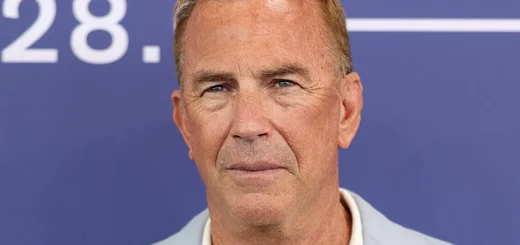“As a Huge Tombstone Fan, I Finally Gave Kevin Costner’s Wyatt Earp Another Chance — Here’s How It Went”
Kevin Costner’s Wyatt Earp and Tombstone have long been linked—not only because they both center on the legendary lawman Wyatt Earp and his brothers, but also because they hit theaters within a year of each other. While Tombstone has gained a reputation over the past 30 years as one of the best Westerns ever made, Wyatt Earp doesn’t enjoy the same level of acclaim. I first saw both films in theaters when they came out, and while I’ve watched Tombstone hundreds of times since, I only recently revisited Wyatt Earp. To my surprise, it’s not nearly as bad as I remembered—though I’m still not ready to call it better than its “twin movie.” Here are my thoughts.
Wyatt Earp Isn’t Better Than Tombstone, But It Does Some Things Better
Watching Wyatt Earp again didn’t change my overall opinion, but I do appreciate some aspects it handles better. Tombstone has an electric energy, packed with memorable lines and standout performances, but it takes significant liberties with the historical facts. In contrast, Wyatt Earp plays it much straighter, and I respect filmmakers who strive to blend history with storytelling, even if absolute accuracy isn’t required for me to enjoy a film.
Wyatt Earp covers much more ground, including all the Earp brothers, while Tombstone focuses mainly on the three brothers involved in the infamous O.K. Corral gunfight. Costner’s film explores Wyatt’s early days, his meeting with Doc Holliday (Dennis Quaid), his time in Dodge City, and the full story of the vendetta ride after Morgan’s murder. It also delves into how the conflict with the Cowboys affected their families, especially Wyatt’s first wife, Mattie Blaylock (played by Mare Winningham). This family dynamic is almost entirely glossed over in Tombstone—which briefly acknowledges Mattie (Dana Wheeler-Nicholson) but doesn’t address her struggles with addiction. Wyatt Earp gives a fuller, more human portrait of the brothers and their wives, adding emotional depth that Tombstone doesn’t attempt.
Strong Casts, Different Approaches
Both films boast fantastic ensemble casts, but their performances reflect the very different tones of each movie. Back when the films came out, there were many comparisons between Dennis Quaid’s and Val Kilmer’s portrayals of Doc Holliday. Kilmer’s Tombstone performance is iconic—full of charisma and sharp wit—while Quaid’s version is quieter and more menacing, arguably closer to the real Doc’s darker side. Kilmer’s Holliday is part comedian, part dangerous outlaw; Quaid’s is more subdued but no less compelling.
The lead actors also take very different routes. Kurt Russell’s Wyatt Earp in Tombstone is the archetypal tough lawman, fitting the film’s high-energy, action-packed style. Costner’s Earp is more nuanced, conflicted, and introspective, aligning with the film’s epic, measured pace. Both have their merits, but Tombstone is undeniably the more rewatchable of the two.
One standout in Wyatt Earp is Gene Hackman as the brothers’ father, Nicholas Porter Earp—a character absent from Tombstone. Hackman’s performance adds valuable context, showing where the brothers came from and what shaped them.
Wyatt Earp’s Biggest Flaw: It’s Too Long and Slow
While the comprehensive story has its benefits, Wyatt Earp’s three-hour runtime is a major drawback. The film drags at times, and I found myself checking the clock more than once—never a good sign. Tombstone, with its tighter two-hour-and-ten-minute length, maintains a brisk pace that keeps you hooked.
Ultimately, Wyatt Earp and Tombstone aim for very different goals. Tombstone is a classic shoot-‘em-up Western with snappy dialogue and thrilling gunfights. Wyatt Earp is a sweeping, (mostly) historically faithful epic about the lawman’s life and battles across the Old West.
In the end, I have a newfound appreciation for Wyatt Earp after all these years. It offers a deeper understanding of the real history behind the legend (and if you want to learn more, I highly recommend the docu-series Wyatt Earp and The Cowboy War on Netflix). For its historical ambition and emotional depth, Wyatt Earp earns some well-deserved respect from me.
But it’s still not Tombstone. I’ll keep watching Tombstone again and again as I have for decades, while Wyatt Earp probably won’t get a second viewing anytime soon.
So, what do you think? If you’ve only ever watched Tombstone, maybe give Wyatt Earp another chance—you might be surprised.


